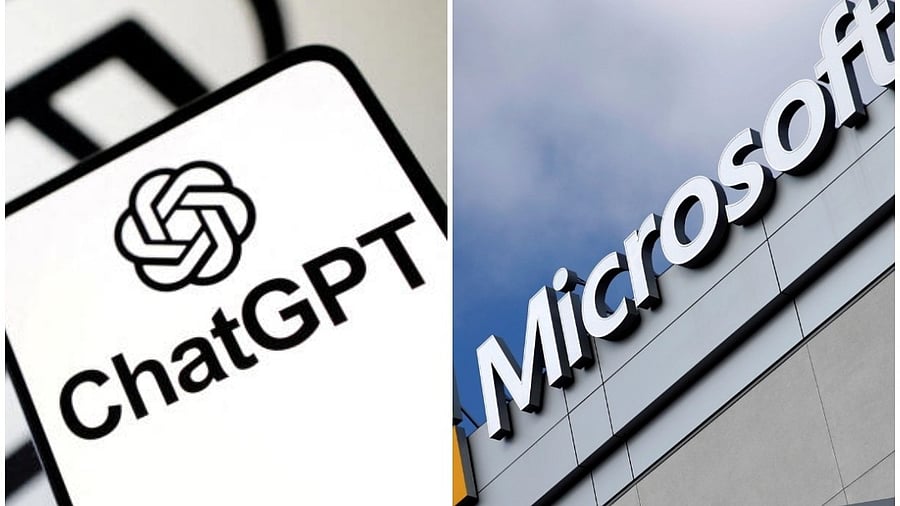
Open AI and Microsoft logos.
Credit: Reuters Photos
By Rachel Metz and Leah Nylen
The two US antitrust agencies sided with part of Elon Musk’s argument to block artificial intelligence startup OpenAI from restructuring as a for-profit company.
The Justice Department and Federal Trade Commission argued in a court filing Friday that overlapping board directors can harm competition, even after the person in question resigns.
Musk’s lawsuit claims that OpenAI and Microsoft violated antitrust laws by having LinkedIn co-founder Reid Hoffman simultaneously serve on the boards of both companies from 2017 to 2023. The lawsuit also cites Deannah Templeton, who served as an executive at Microsoft and as a non-voting part of OpenAI’s board from December 2023 to July.
“Where a defendant voluntarily ceases illegal conduct, it still bears a ‘heavy burden’ to demonstrate it is ‘absolutely clear that the allegedly wrongful behavior could not reasonably be expected to recur,’” the FTC and Justice Department said. The agencies said they weren’t taking a position on the ultimate question of whether OpenAI can be restructured.
The filing comes in response to Musk’s recent request that a federal court stop the company from pursuing what he called an “illegal” conversion to a for-profit company. A hearing on the injunction request is set for Tuesday in Oakland, California.
Musk’s efforts are part of a months-long attack on OpenAI Chief Executive Officer Sam Altman, more than nine years after the two men worked together to launch OpenAI as a nonprofit with a stated mission to develop generative AI for the benefit of society.
The FTC has been scrutinizing OpenAI as part of several probes. Last year, the agency opened a study, expected to be released shortly, into the AI investments by Microsoft and other tech giants.
Separately, the consumer protection and antitrust agency has been looking into whether OpenAI misled consumers about its offerings. It has also been probing inappropriate board overlaps that involve Hoffman. He in turn has criticized FTC Chair Lina Khan, publicly calling for her ouster from the agency.
Musk first sued OpenAI in California state court in February and then dropped the case in June. Musk revived the litigation in August in federal court.
Musk, who left OpenAI in 2018 and founded rival startup xAI in 2023, alleged in previous court filings that OpenAI broke its promises to him and abandoned its founding purpose as a charity when it accepted billions of dollars in backing from Microsoft starting in 2019. He also said that without quick court intervention, it will soon be too late to stop Altman’s “behemoth” from crushing its rivals.
OpenAI declined to comment on Friday’s filing. It has previously argued that Hoffman and Templeton’s board stints didn’t run afoul of antitrust law.
OpenAI has called Musk’s suit baseless, arguing that the billionaire originally supported a more traditional corporate structure for the startup.